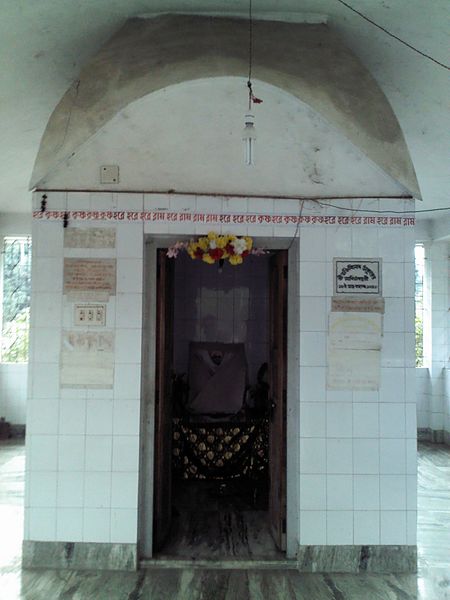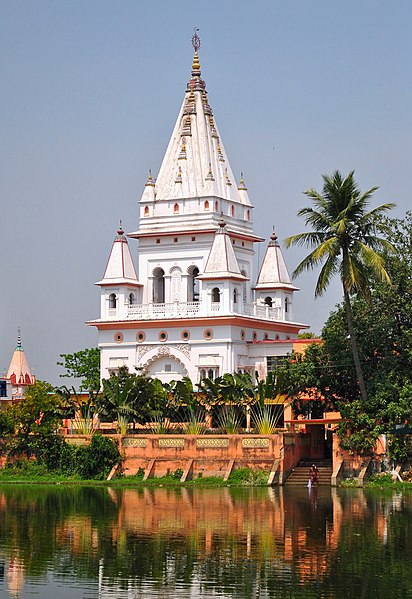Bhaktivinoda Thakur, born Kedarnath Datta, was an Indian Hindu philosopher, guru and spiritual reformer of Gaudiya Vaishnavism who effected its resurgence in India in late 19th and early 20th century and was called by contemporary scholars as a Gaudiya Vaishnava leader of his time. He is also known along with his son Bhaktisiddhanta Sarasvati, with initiating the propagation of Gaudiya Vaishnavism in the West and its global spread.
Bhaktivinoda Thakur, c. 1910
Bhaktivinoda Thakur's memorial at his birthplace in Birnagar, West Bengal
A shrine at the actual site of birth
The entrance to Kedamath Datta's matemal home in Birnagar (Ula), West Bengal under renovation. 2014
Gaudiya Vaishnavism, also known as Chaitanya Vaishnavism, is a Vaishnava Hindu religious movement inspired by Chaitanya Mahaprabhu (1486–1534) in India. "Gaudiya" refers to the Gaura or Gauḍa region of Bengal, with Vaishnavism meaning "the worship of Vishnu". Specifically, it is part of Krishnaism—Krishna-centric Vaishnavite traditions.
Vigrahas of Caitanya Mahaprabhu and Nityananda prabhu at ISKCON Temple, Pune
A Vigraha of Caitanya mahaprabhu in ISKCON temple, Mayapur
Pancha-Tattva deities: Chaitanya Mahaprabhu, Nityananda, Advaita Acharya, Gadadhara and Srivasa, installed in a Gaudiya Vaishnava temple
Yogapith temple at Chaitanya's birthsite in Mayapur established in 1880s by Bhaktivinoda Thakur, presently caretaken by the Sri Chaitanya Math.








